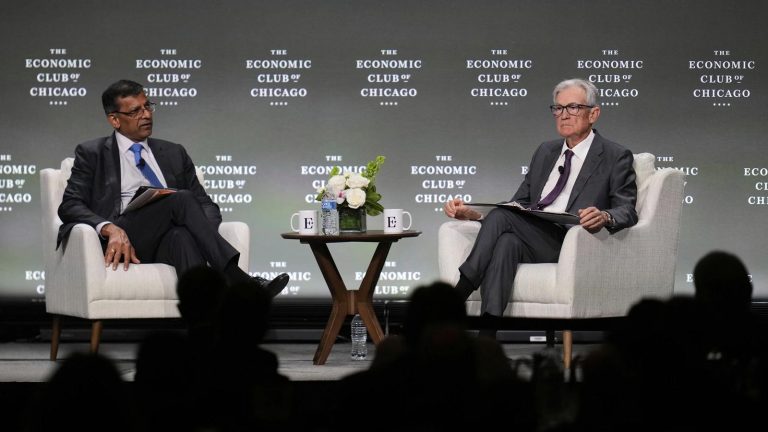
Millionaires Flee London Amid Tax Crackdown and Brexit Woes | Image Source: www.thetimes.com
LONDON, United Kingdom, 9 April 2025 - Once consecrated as the world capital of wealth and luxury life, London witnessed an unprecedented exodus of its richest inhabitants. A combination of stricter tax rules, political instability after Brexit, and declining financial prestige meant that more than 11,300 millionaires left the British capital last year, only according to data from Henley & Partners and New World Wealth. This 12 percent decline in net high-value individuals (HNWis) since 2014 marks the city’s largest wealth flight in decades, leaving London out of the list of five richest cities in the world for the first time in modern history.
The most striking thing is the emotional subtlety that accompanies this exit. Like Charles McDowell, a prominent real estate consultant for the London elite, told the Times: “It’s horrible. They’re leaving. I have a Norwegian family on the phone. They’re going to Zurich. A Uruguayan billionaire is going to Madrid. They don’t want to leave, but tax changes leave them no choice. »
His sentiments mirror a broader unease brewing among the global elite who once viewed London as a safe, stable, and tax-efficient base.
What caused the exodus of millionaires from London?
Several converging forces made London less welcoming to the rich. Among them, the UK government decided to dismantle the “no-dom” tax status of centuries ago, a scheme dating back to 1799 that allowed rich foreigners residing in Britain to avoid paying British taxes on foreign income. This seismic change, according to The Telegraph, already causes an exodus as individuals and families reassess their financial residence.
Brexit adds to the tension, which continues to cast a long shadow on Britain’s economic prospects. According to Lisa Nandy, the UK’s cultural secretary, while the tax structure remains “competitive” on paper, Brexit has introduced layers of trade friction and regulatory complexity that have international investors without development. “The report highlights a variety of factors that have led to this, especially Brexit”
she told Sky News, emphasizing the need to strike a “better deal” with the European Union.
Does taxation in the United Kingdom make wealth disappear?
Taxation remains a major responsibility. Capital gains and inheritance taxes in the United Kingdom are one of the strongest in the world, which has long been a painful place for HNWI. According to Andrew Amoils, Research Manager at New World Wealth, “capital gains and property taxes in the UK are among the highest in the world. This discourages individuals of high net worth, wealthy entrepreneurs and retired people from wanting to live in London, or anywhere else in the UK.”
In a broader sense, aggressive labour government fiscal reforms have led to discussions on the balance between public financial responsibility and economic competitiveness. The Independent pointed out that the amendments to the Labour Tax Code were aimed in part at joining an inflamed social protection budget, but critics say that it has now begun to dismantle the London financial ecosystem.
Where are the millionaires going and why?
Not only do people of high value leave London, they go to jurisdictions that offer tax efficiency or economic dynamism, or both. According to Henley & Partners, many millionaires relocate cities such as Zurich, Madrid, Singapore and Dubai. In fact, Asia and America have become the two most important destinations.
- San Francisco Bay Area saw a 98 percent rise in millionaire population over the past decade.
- Singapore witnessed a 62 percent increase.
- New York City retained the crown as the wealthiest city, boasting 384,500 millionaires.
On the contrary, the old London Mile Square fell, both in terms of financial influence and attractiveness. The growing importance of the London Stock Exchange, which is no longer among the top 10 in global market capitalization, has strongly deterred investors and entrepreneurs with financial savings, said Amoils.
How did London’s decline worsen?
Brexit is more than a geopolitical change, it’s psychological. The UK’s departure from the EU has created a sense of unpredictability that has affected cross-border mobility, supply chains and even the arts. As Nandy pointed out in his interview with Sky News, musicians and creative professionals face significant barriers between the UK and the EU, illustrating the wider and cascaded impact of Brexit in all sectors.
According to the Bureau of Budgetary Responsibility, Brexit is expected to account for 4% of the UK’s GDP each year due to increased non-tariff barriers. This is not only a success for the economy; It is a sign for international investors that the United Kingdom may no longer be the stable and prosperous market that was once.
Why is this exodus important to the average Londoner?
For some, the flight of millionaires may seem incoherent or even a positive development in the light of calls for the redistribution of wealth. But the implications are deeper. HNWI contributes significantly to local economies, including through real estate investment, philanthropy and business creation. Its production produces undulating effects: a decline in real estate values, a decrease in sales of luxury goods and a reduction in capital inflows.
In addition, this wealth flight is carried out in parallel with the budgetary adjustment of all public services. As The Independent said, one million people with disabilities are expected to lose benefits in labour-saving measures. Without the tax base provided by the rich, the state could hasten to maintain public funding at the current level.
Is London no longer competitive as a financial centre?
Not at all, but his aura has diminished. Once regarded as Europe’s undisputed financial capital, London now shares the stage with newer and more agile players. Cities like Dubai and Frankfurt benefit from London’s problems, attracting both institutional financing and corporate wealth. Meanwhile, Hong Kong and Singapore continue to thrive as global portals for wealth management and technological innovation.
Paul Johnson, of the Institute of Tax Studies, told The Independent that while ideas like a “capital tax” may seem attractive, “no country in the world has succeeded with a wealth tax that has raised serious money”
underscoring the complexity of maintaining fiscal responsibility without alienating wealth contributors.
Could policies change the trend?
This depends on the government’s willingness to reassess its position. While the work points out that it takes the right approach to balancing taxation and business support, critics suggest that more proactive measures, such as tax incentives for entrepreneurs, by simplifying immigration with skilled talent and reviving with the EU, could help slow down the tide.
Sir Keir Starmer pushes to “do the work of Brexit” by reviewing the agreement signed under Boris Johnson can be a step in this direction. But time is essential. The greater the uncertainty, the deeper the decline in London’s global imagination, and the worksheets of global managers advising their clients to look elsewhere will be.
Ultimately, London remains a city with immense cultural and economic potential. Their fate is not sealed, but it is at a crossroads. The place it occupies among the richest cities in the world depends on how it takes on the difficult terrain of fiscal policy, geopolitical reality and investor sentiment in the years to come.
According to Henley & Partners, London is currently behind New York, Tokyo, San Francisco Bay Area and Los Angeles in a millionaire population. And for the first time in decades, he lost his crown to rival cities that offer more favorable conditions. In the meantime, Moscow has experienced a 25% decline in millionaire residents, largely due to the war in Ukraine and the resulting sanctions.
The return to importance will not be easy, but it is still possible. The real question is, will decision-makers have the courage to recalibrate before it is too late?



